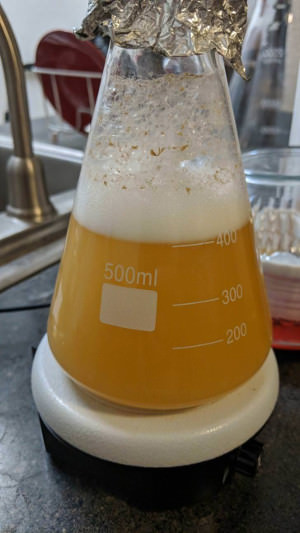zeg
Well-Known Member
Well, HISTORICALLY I don't think it's that big of a leap, it's actually not much different then the yeast sticks I mentioned at the beginning of this thread. They were making beer with yeast dried on sticks millenia ago in Norway. Here's a mention of it.
Yes, yes, I saw your post and have heard about the sticks before. It's unquestionably possible. Heck, if you ever do any baking in your kitchen, you can probably get beer just by leaving your wort open to the yeast floating around.
I really mean something a bit more sophisticated, here. The brewing stick is a step more sophisticated than just letting wild yeast fall in, and drying a starter is a step further than that. There's still a ways to go to dry a specifically selected, pure strain, though.












































![Craft A Brew - Safale S-04 Dry Yeast - Fermentis - English Ale Dry Yeast - For English and American Ales and Hard Apple Ciders - Ingredients for Home Brewing - Beer Making Supplies - [1 Pack]](https://m.media-amazon.com/images/I/41fVGNh6JfL._SL500_.jpg)
















